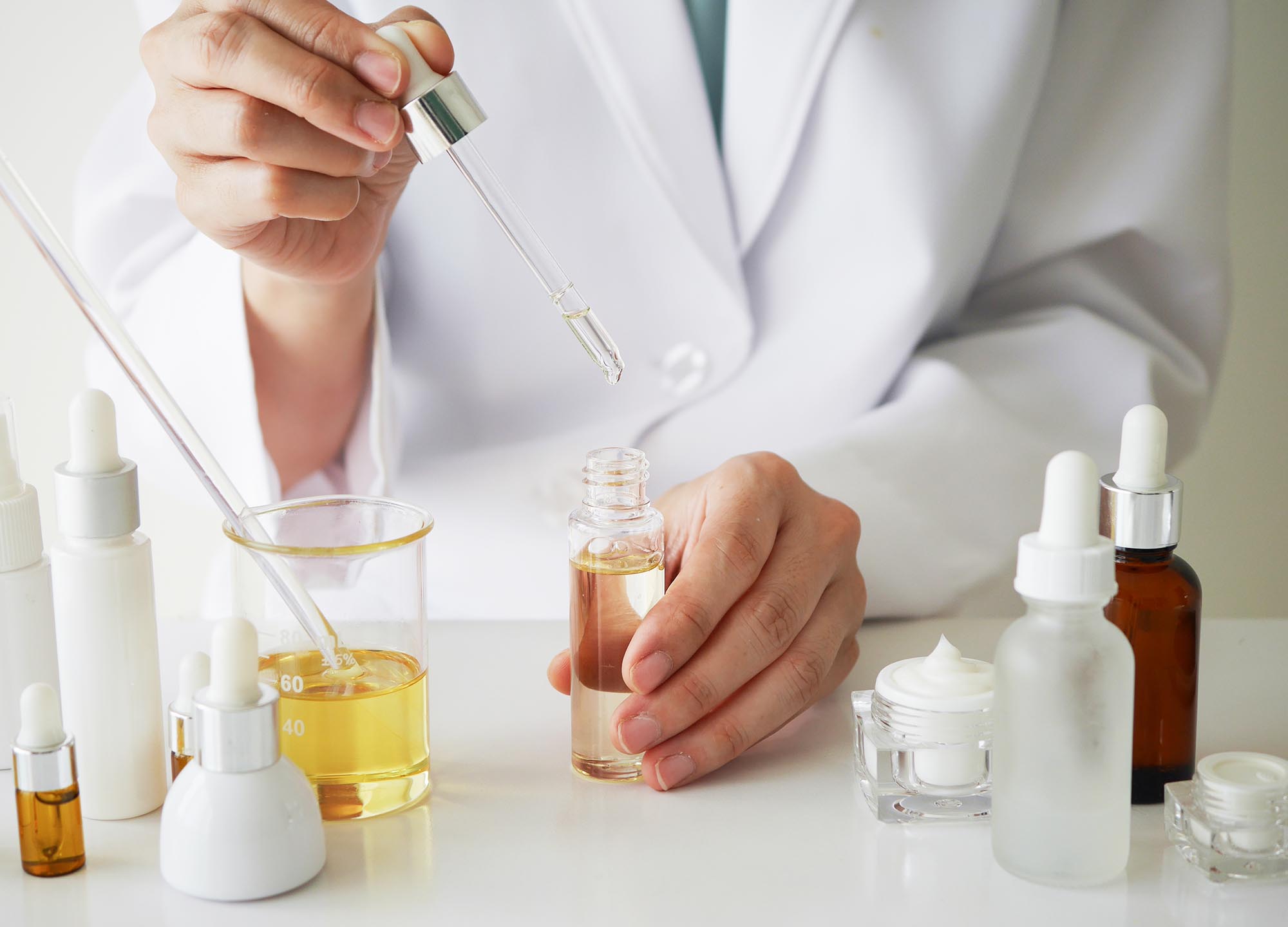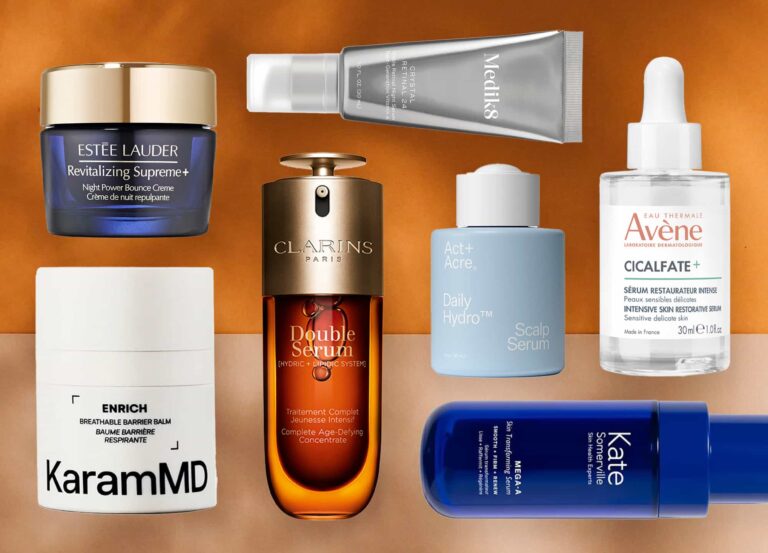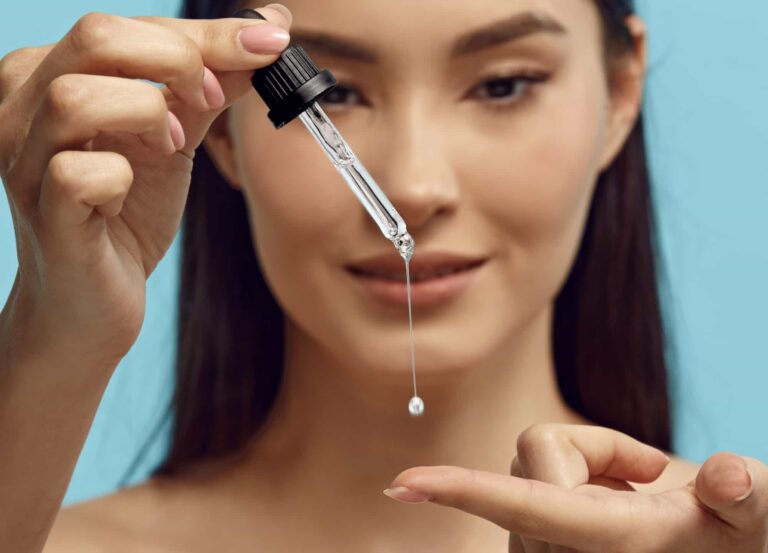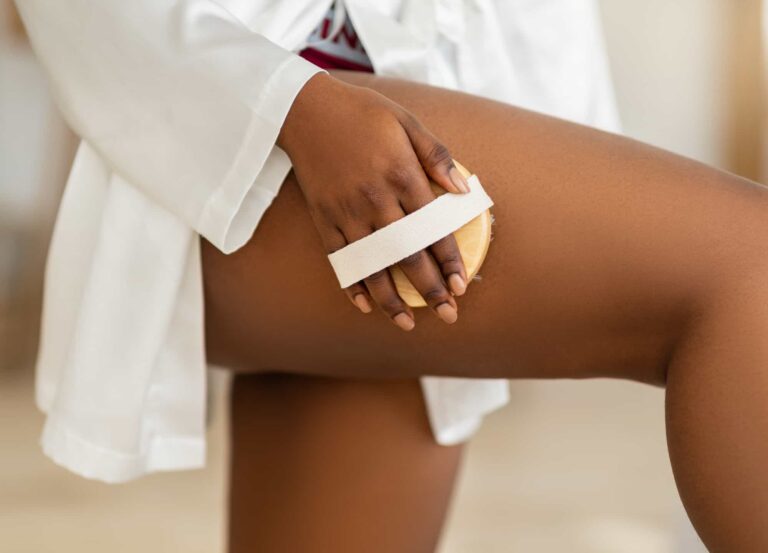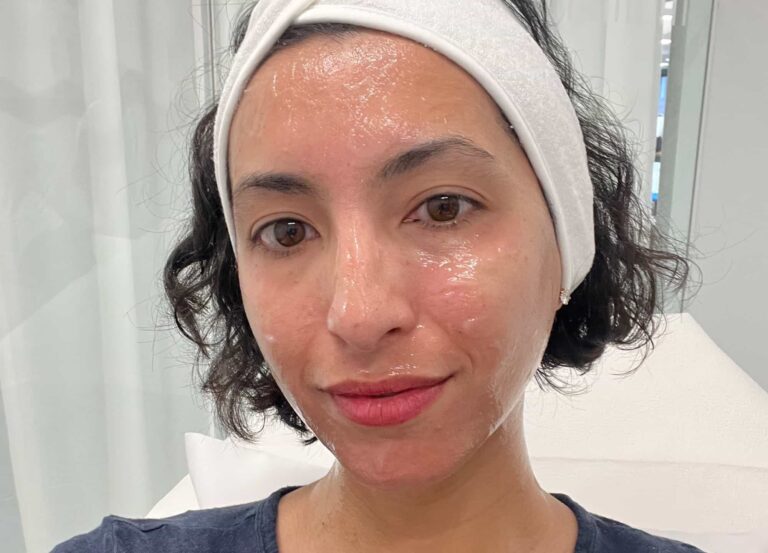Pick up any beauty product, and you’ll likely see several buzzy terms splashed across the packaging. This holds especially true in the skin-care category, where there’s no shortage of catchphrases used to capture shoppers’ attention. Two of the most popular? Dermatologist-tested and dermatologist-recommended. These sound good—after all, if a dermatologist is testing or recommending something, you can trust that it works, right? It’s not so simple. “The terms ‘dermatologist-tested’ and dermatologist-recommended’ started being used on skin-care products as a way to lend credibility to their efficacy,” explains New York City board-certified dermatologist Dr. Joshua Zeichner. “However, you really have to take these terms with a grain of salt,” he warns. Here’s why.
What dermatologist-tested means
The phrase seems to imply that a slew of dermatologists rigorously tested the product for weeks on end and loved the results, but that’s hardly the case. Dermatologist-tested simply means that at least one derm tested the product for one parameter, which could be whether it’s safe for use, is safe for sensitive skin, or improves skin tone, says Ron Robinson, a cosmetic chemist in New York City and the founder/CEO of BeautyStat Cosmetics. It doesn’t mean that the product “passed” the test either—you could have one dermatologist who tried the product and hated it, and the brand may still put “dermatologist-tested” on the label, adds Laura Lam-Phare, a cosmetic chemist in West Hollywood, California. She goes on to say that neither “dermatologist-tested” nor “dermatologist-recommended” are claims that are regulated by the U.S. Food and Drug Administration (FDA) or the Federal Trade Commission (FTC)—you really are taking the brand’s word for it. There’s also no easy way for the consumer to know how many dermatologists tested the product; you’d have to ask the brand directly, and they’d have to be willing to disclose that info, notes Robinson. And again, even if hundreds of doctors did test it, the claim doesn’t mean that the product achieved any particular level of effectiveness, just that it was tested, says Dr. Zeichner.
What dermatologist-recommended means
According to Robinson, this claim holds slightly more weight. “This goes beyond just testing and means that a dermatologist or dermatologists would recommend the product, either to their patients or to consumers at large,” he says. Dr. Zeichner notes that skin-care companies, particularly the larger ones, typically send out surveys to a panel of dermatologists, asking their opinions on the attributes of a specific product. (So while there can be just one derm involved, there are usually more—especially if a big brand is involved.) But just because a panel of dermatologists reports that it recommends using the product, that doesn’t mean all dermatologists recommend it or that it’s something they would recommend for you and your skin, Dr. Zeichner cautions.
Bias is a problem, in both cases
Robinson points out that brands often rely on dermatologists who are on staff or consult for the company, so there may be an inherent bias that consumers aren’t aware of. And even if they’re not directly affiliated with the brand, dermatologists might be paid in either the testing or recommendation scenario, he adds.
What claims should you look for instead?
It falls on the consumer to do their due diligence and not take claims at face value. “When you see terms such as ‘dermatologist-tested’ or ‘dermatologist-recommended,’ ask the brand for more details. How did the dermatologists test the product? Who do they recommend it for?” advises Lam-Phare. The good news is that many brands are being more transparent these days (as a result of consumer demand), so checking out their websites and looking for links to test results and the like is a good way to start, she says. She also points out that, broadly speaking, these types of claims tend to have more validity when they come from larger skin-care companies. That’s because large brands are often concerned about potential lawsuits, and they typically have legal teams that make sure there are testing procedures and protocols in place, to back up this type of terminology, she explains.
Robinson says to look for terms such as independent clinically tested or independent dermatologist-tested. This means that one, the dermatologists involved are testing products blindly, not knowing what they are, and two, that neither the dermatologist nor the brand have any information about the other party. The anonymity of it all tends to make the process slightly more credible—and may help avoid that issue of inherent bias. He adds that consumer testing claims are also worth seeking out but to look for those with larger sample sizes, of 50–100+ consumers. Dr. Zeichner says that having data-based evidence—like clinical results and before and after pictures–is a much better way to determine a product’s efficacy than simply going by the terms splashed on a label.
In short, when a product proclaims itself to be “dermatologist-tested” or “dermatologist-recommended,” that doesn’t mean it’s going to be an effective option or the right one for you. Ultimately, your own derm—who has analyzed your skin—knows better.







